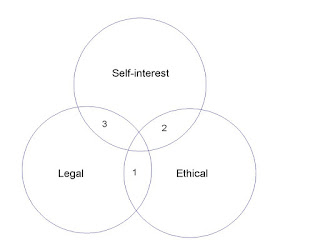Due to a courageous government official whistleblower, Donald Trump, in his believed defense, felt compelled to
release a copy of the now infamous July 25th phone call transcript
between himself and President Zelenskyy of Ukraine. In what Trump referred to as “a perfect call,”
the W.H. disseminated a copy of the call memo that was not a verbatim likeness (see memo footnote), and with three curious
ellipses of missing, possibly relevant context. When the W.H. was asked for the originally
transcribed memo, members of the media were told it had been “mistakenly” locked away in the super secret W.H. server, reserved for only the most
classified of material. To our
knowledge, that original memo remains there, in that server, to this day.
Though only a “reproduction” rather than an “exact” copy,
the contents of that incomplete memo has led to the House of Representatives successful
impeachment of Trump, to wit the following articles were forwarded to the US
Senate for their consideration...
The articles of impeachment against Trump are two:
I … Abuse of Power
II … Obstruction of Congress
Re: Article 1
It
is a fact that Trump overtly sought personal assistance from a
foreign government, Ukraine, in the form of an announcement of an
investigation into, not just some random person, but in particular Trump’s political
rival, Joseph R. Biden, in exchange for
Trump’s releasing of $391million of bipartisan-approved military support
against Ukraine’s war with Russia, along with a much-coveted W.H. visit by Zelenskyy.
Re: Article II
It
is a fact that not one requested W.H. document was handed over to the
House Managers *and* several relevant witnesses were instructed, by Trump, to not comply with House subpoenas, though
some conscientious witnesses defied Trump’s instructions and came forth with
their sworn, albeit somewhat damning, testimony.
Regarding Article I, the suspicious part to most people is, rather than using the full force and powers of the greater U.S. Intelligence Communities, Trump used his private/personal attorney, Rudy Giuliani and associates, to persuade Ukraine to undertake Trump's request of these investigations. That's highly unheard of and takes on a reasonable appearance of "abuse of power," per the constitution.
In spite of what damning evidence against Trump has
come forth thus far, and is sure to come out as this year proceeds toward the
November, 2020 U.S. elections, Mitch McConnell strives to keep his Senate
caucus together in an acquittal of Trump. As of today, so far, so good, for
Mitch. Things are looking promising that
this trial will end before Super Bowl Sunday, and the president's Tuesday SOTU
address.
* * *
Here are the questions for your consideration:
1. If Trump is acquitted, has our constitution been
weakened for all time by Trump's behavior, and a new precedent has been
established, allowing any future POTUS to ask for foreign interference in U.S.
elections, without the threat of recrimination?
2. If acquitted, how will the history books look back
on this moment in time? Will it be that the U.S. Constitution, and those who promote it, indeed swear to uphold its values, have failed to live up to its supposed/believed
idealism, and as something to hold up for all struggling democracies to aspire to?
3. If a POTUS can’t be impeached and removed for this specific behavior,
what exactly can a POTUS be impeached and removed for? What does it take?
Give some examples.
4. Do you think that, if Trump is acquitted, he will try
this kind of thing again?
5. Will Trump’s acquittal help or hurt his re-election
chances? Give your predictions.
Thanks for posting and recommending.
